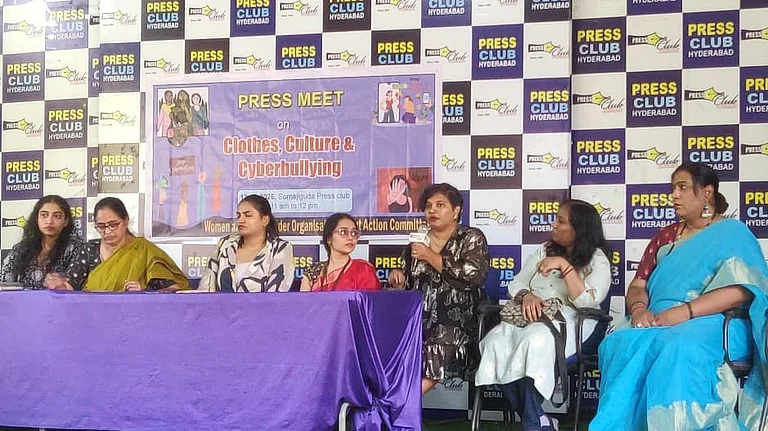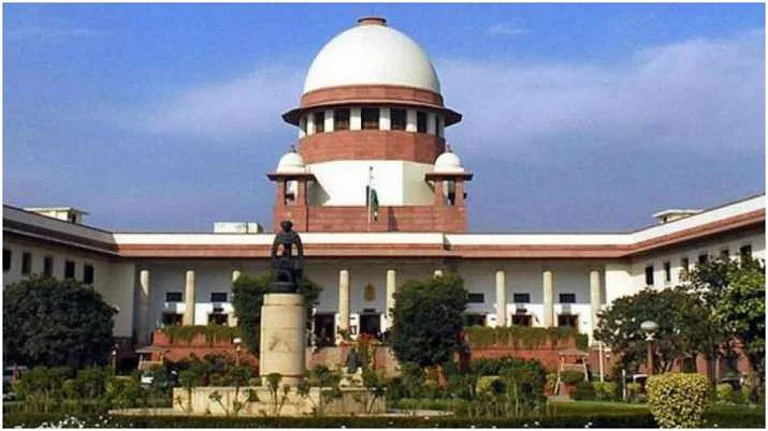“A man is a man; an act is an act; rape is a rape, be it performed by a man the ‘husband’ on the woman ‘wife’” — This is what Justice M. Nagaprasanna of the Karnataka High Court ruled in March 2022, while refusing to quash rape charges that were filed by a wife against her husband. While the Supreme Court of India stayed the judgement in July 2022, the case was clubbed by the SC Bench with other petitions to be heard on the grave issue of legally recognising marital rape in India.
A three-judge Bench of the Supreme Court is currently hearing petitions debating the constitutionality of the exception to marital rape in Section 375 IPC, which is now Section 63 of the Bharatiya Nyaya Sanhita. In its counteraffidavit submission to the court, the Union government stated that, “While a husband certainly does not have a fundamental right to violate the consent of the wife, terming such a violation as 'rape' is excessively harsh and therefore, disproportionate.” The submission further contended that such violation within the institution of marriage bore different consequences as compared to outside it. The statement also expressed concerns regarding the implications of criminalising marital rape on conjugal relationships and the consequent “destabilisation” of the institution of marriage in India.
While the Union government advocated for a legislative approach to the matter instead of a legal one, it stated that the existent legislations on safeguarding women’s consent were adequate to protect women from being violated even within the institution of marriage. The current legal protections for married women in India include Sections 354, 354A, 354B, 498A IPC, and the Protection of Women from Domestic Violence Act, 2005.
However, there is a need to interrogate the reasons behind treating marital rape as an exception under Section 63 BNS. The exception stems from the colonial patriarchal idea called the Hale’s Principle (originating from a British Chief Justice, Matthew Hale, in 1736), which assumes the automatic consent of a woman for sexual intercourse when she marries a man. This means that a married woman surrenders her bodily autonomy to her husband by the virtue of their conjugal contract. Effectively, this creates a differentiation in the legal protection provided to women based on their marital status. As Senior Advocates Karuna Nundy and Colin Gonsalves have argued, the marital rape exception thus becomes unconstitutional by being fundamentally violative of Articles 14, 15, 19 and Article 21 of the Indian Constitution.
The government has further raised concerns on what kind of evidence the courts would rely upon while establishing such a violation. It is necessary to note here that apart from semen collection and DNA analysis, there are several bodily and mental health impacts that can indicate rape in a sexual violence survivor. The Guidelines and Protocols for Medico-Legal Care for Survivors/Victims of Sexual Violence, published by the Ministry of Health and Family Welfare, states categorically that, “Absence of injuries does not mean the survivor has consented to sexual activity. As per law, if resistance was not offered that does not mean the person has consented.”
Further, it is important to understand why existent legislations do not suffice in covering the legal penalisation of marital rape. As several activists and lawyers have pointed out, the DV Act cannot be a replacement for a law against marital rape because it provides civil remedies like protection order, compensation order or residence order. Such remedies assume that the survivor wishes to continue living with her perpetrator and often compels them to return to their husband’s homes while undermining their personal safety. Section 498A, which pertains to a married woman being subjected to cruelty by her husband, has a provision for a penalty of upto three years of imprisonment and fine for the convicted party. When married women are forced to register their complaints of rape under Section 498A due to the marital rape exception in Section 375, they are automatically being discriminated before law in terms of the extent of penalty, by virtue of being married to the accused.
It is crucial to note here that in September 2022, a Supreme Court Bench led by Justice DY Chandrachud included marital rape within the ambit of rape for the purpose of the Medical Termination of Pregnancy Act and Rules. This means that wives who conceive out of marital rape are also entitled to abortions. It is, therefore, necessary that marital rape be treated at par with rape within the ambit of penalisation as well.



























